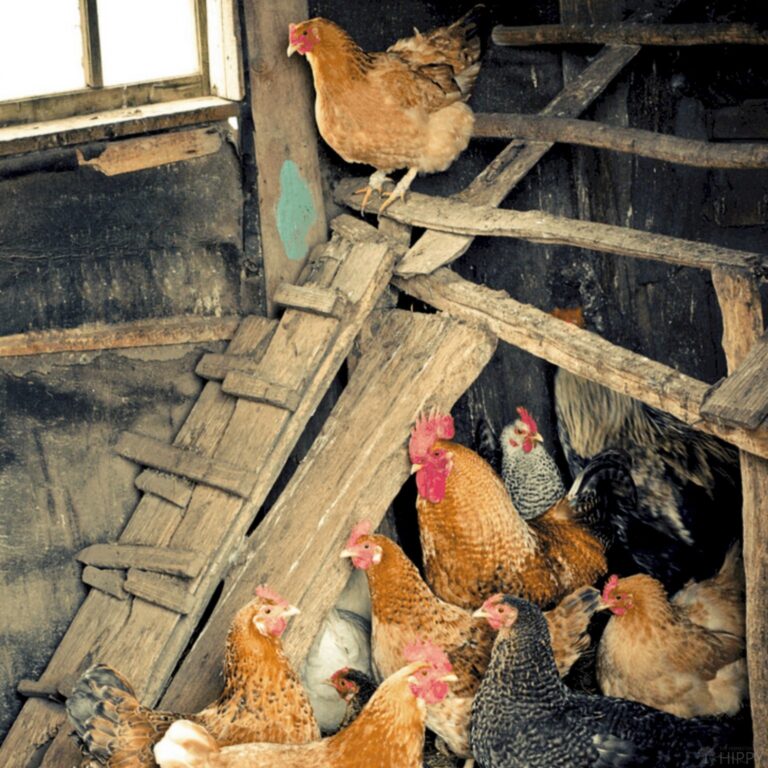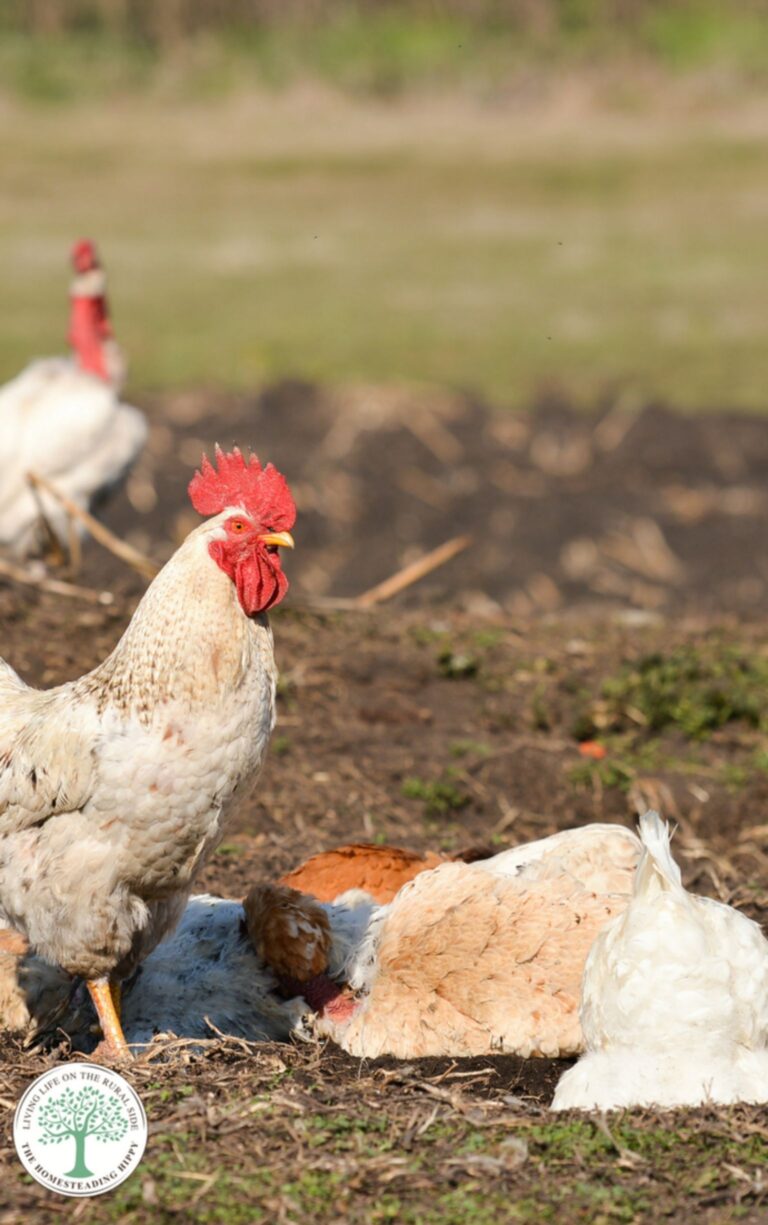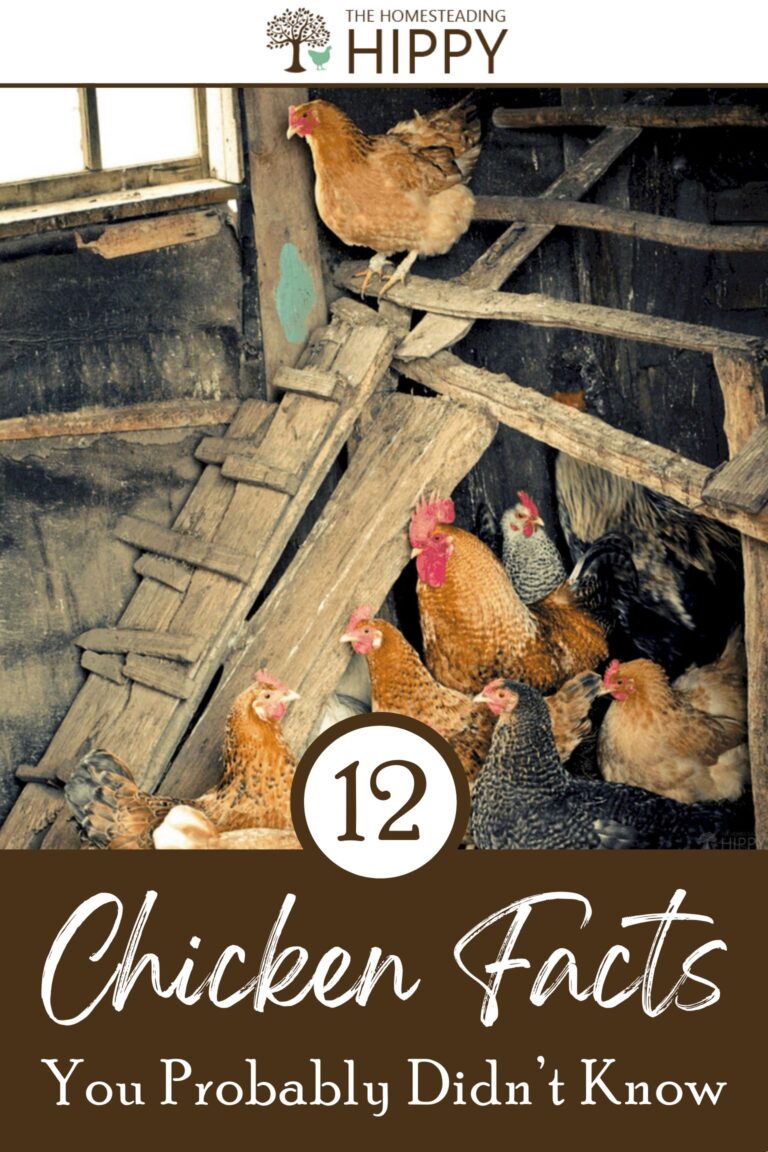You know, there’s an old saying that says familiarity breeds contempt. But if it doesn’t breed contempt, then familiarity can definitely lead to taking something for granted.

This is easy to see when considering all of the domestic animals that we have in our lives.
Everybody jumps for joy when they see a charismatic wild animal out in nature, but no one really cares about the animals that we have in and around our homes or on our farms day in and day out. I think that’s kind of a shame.
Nowhere is this attitude more readily on display than when it comes to the humble chicken.
Among the most common livestock in the world today, these birds are supremely interesting and indeed beautiful and worthy of admiration.
Like all animals, chickens have many interesting attributes waiting to be discovered by those that will pay attention. This article will share with you 12 fascinating facts about chickens that you probably didn’t know.
1. Chickens Do Remember You (and Other People)
Chickens have an undeserved reputation for being stupid. Usually described as witless, if even that, the reality is anything but.
Chickens are surprisingly intelligent, and beyond simple problem-solving ability, they have quite a bit “going on upstairs,” so to speak.
For instance, you might be surprised to learn that chickens have sophisticated memories.
Research has shown that chickens can remember the individual faces of anywhere between 90 and 110 people and other species of animals, and associate both positive and negative feelings with those faces.
This means that they will remember the people that scare them or treat them poorly, and also remember the people that are kind to them- or tip them with their favorite treats! – and they will act accordingly!
2. A Flock Really Does Have a Pecking Order
A flock of chickens isn’t just some half-panicked, bumbling group of flapping birds, or else a group of hens ruled over by one tyrannical rooster.
A flock, especially one composed of hens and roosters, has a surprisingly sophisticated internal hierarchy that dictates everything from when and where members can eat to sleeping positions in the coop and even who gets the choice duty when standing lookout over the rest of the flock.
Like most animals, chickens establish this pecking order based on dominance but also on interactions with fellow members that are far more amicable.
The head rooster, for instance, will have subordinates that will share the job of keeping the flock safe while looking out for predators or intruders.
Dominant hens, likewise, will be much closer to the dominant rooster, enjoy better sleeping accommodations, and have a few lieutenants of their own that will usually join her during bathing and eating forays.
To the uninitiated, a run of chickens might look like chaos, but with just a little more insight it is possible to see the amazing social interactions that chickens have.
3. Chickens Have Friends Just As We Do
This sort of goes with the previous entry, but it is worth pointing out that chickens do form fast friendships with others of their kind, even compared to other animals that exist in flocks or herds.
It is entirely common to see chickens foraging, bathing, resting, or just exploring repeatedly with their buddies.
In fact, it seems like some chickens just aren’t happy if they don’t have their friends along with them in their day-to-day routine.
If something happens to their friend, they will enter a period of mourning where they aren’t just feeling like themselves and behave erratically.
Similarly, the company of their closest friends might be just the thing to correct behavioral abnormalities.
This is something that every person can understand, so consider it the next time you see two chickens that seem particularly chummy.
4. Most Chickens Can Fly
Nine times out of ten, you will hear chickens described as flightless, but the reality of the matter is that chickens can fly, or at least fly in a limited way.
Assuming that smaller and medium-sized breeds haven’t had their wings clipped and aren’t overweight, most are usually capable of assisted jumps or glides that can top 9 or 10 feet in height and cover a distance of dozens of feet horizontally when they are responding to a threat or are surprised.
Of course, they also use these limited flight abilities to easily jailbreak out of enclosures that aren’t covered!
Don’t make the mistake of getting chickens and installing a short fence thinking that your birds are contained and you have nothing to worry about: they will quickly prove you wrong in this regard.
5. Some Chickens Cannot Fly at All
On the other hand, some chickens are truly flightless. Either due to their sheer size alone, weight, or selective breeding slowly eroding the necessary flight muscles and other characteristics, these chickens are basically ground-bound except for flapping hops.
This might seem a little sad and indeed it does deprive the chicken of one of its primary defensive measures if attacked, but on the plus side, it makes it a whole lot easier to keep them right where you want them.
Chickens that cannot fly are not very good climbers, and you can rest assured that these flightless breeds won’t be making nearly as many escape attempts.

6. Chickens Use Dust and Dirt to Bathe
One of the most humorous questions that veteran chicken keepers tend to field from greenhorns is how you are supposed to bathe a chicken.
The answer, of course, is the chickens take care of 90% of their bathing requirements themselves, and they don’t even use water to do it most of the time.
Chickens are infamous for dust bathing, a process where they kick up a cloud of dirt, sand, and dust from the ground to coat their bodies in order to dislodge parasites, maintain feathers, and generally clean themselves.
This is another social activity that chickens usually enjoy together, and one that you can assist them with by providing a specially prepared dust bath mixture in a clean, clear open area or container.
7. Chickens Can and Will Go Outside When it Rains
There is an old myth that says chickens will never, ever, go outside during the rain, and also that they typically retreat inside well before rain ever arrives.
Well, consider this myth busted because chickens can and do go outside when it’s raining, though not usually when there is a stiff downpour.
A gentle shower does not bother chickens in the least, and in fact, they seem to quite enjoy it.
Rain also brings worms to the surface, and it is totally true that chickens love eating fresh, wriggling worms, so you can expect them to head outside in search of them whenever it is gently raining.
8. Chickens Can Swim When they Have To
Another myth about chickens states that they cannot swim at all, or that they sink like a stone if they enter deeper water where their feet don’t touch the bottom.
Happily, neither one of these assertions are true: Chickens can swim when they have to, usually as a consequence of accidentally falling into the water.
However, like most birds and larger species in particular they do not swim well, and quickly become waterlogged and exhausted.
You should never force your chickens to swim, and always be prepared to help them get out if they do fall in, but so long as they have an easy way to get out of a body of water you can usually depend on them to make it to shore.
9. Chickens are Early to Bed and Early to Rise
Chickens probably have a stricter schedule than you do! Chickens, as a general rule, are always up at the crack of dawn and by the same token are ready to retire to bed inside the coop before the sun is fully set.
This is because chickens know they are more vulnerable to predators at night, and their every instinct motivates them to tuck their tail feathers in before the sun goes down and darkness falls.
If you don’t have the coop door open and waiting for them, you can expect your chickens to be lined up and waiting to get in by the time the sun gets low!
10. Chickens Have Poor Night Vision
Part of the reason they are so eager to be bedded down before sunset is that chickens have poor night vision.
Unlike many other birds and animals, chickens do not enjoy good eyesight at night, and this makes them even more vulnerable to predators, but also to getting lost or having accidents.
A chicken that is forced to stay outside after night falls is very likely to just stay where it is and wait for the sun to come up if it has any choice in the matter and no other ambient light to rely on.
11. Chickens Don’t Urinate As Mammals Do
Everybody knows that chickens poop, but a quick search on the internet reveals that some people really want to know if chickens pee, also.
Kind of a gross topic for sure, but you’ll see it regularly on enthusiast forums and elsewhere.
The truth is that chickens do not really urinate as other animals do, but they do expect urine as a component of their solid waste through their vent.
Their urine can be seen as a white or pale colored patch in their droppings, but reports that they occasionally expel liquid waste through their vent is to be interpreted as a symptom of dietary problems or illness because it is not a stream of urine but rather feces.
12. Some Chickens Lay Colored Eggs
The most iconic chicken egg that we know today is white in color, or else brown, because these are the colors that we get in egg cartons from the grocery store.
It might surprise you to know, though, that some species of chicken can actually lay colored eggs naturally, no dyes required!
Among these breeds the Easter Eggers are probably the most common and well-known and can lay eggs that are pale blue, green, or even yellow in color, and there are other breeds besides that lay colored eggs.
These eggs still taste like normal chicken eggs, however, so if you want the novelty of cracking open-colored eggs for your morning breakfast know that there are several breeds that will fit the bill.

Tom has built and remodeled homes, generated his own electricity, grown his own food and more, all in quest of remaining as independent of society as possible. Now he shares his experiences and hard-earned lessons with readers around the country.
Find out more about the team here.

For the pecking order, I’ll add that an individual hen’s rank in the order can vary from time to time too. I have noticed that the rooster’s favorite isn’t a lifetime appointment. The favorite-of-the-week does enjoy a status boost, but when he takes a shine to a different hen, she’s back in line where she had been. Also, when they’re in the throes of The Molt, a hen’s status plummets — even down to Omega Hen levels — until she regrows here feathers. Then she resumes her former rank.